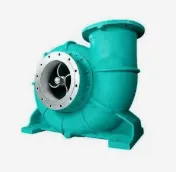ქართული
- აფრიკელი
- ალბანური
- ამჰარული
- არაბული
- სომხური
- აზერბაიჯანული
- ბასკური
- ბელორუსული
- ბენგალური
- ბოსნიელი
- ბულგარული
- კატალონიური
- სებუანო
- კორსიკული
- ხორვატული
- ჩეხური
- დანიური
- ჰოლანდიური
- ინგლისური
- ესპერანტო
- ესტონური
- ფინური
- ფრანგული
- ფრიზიული
- გალისიური
- ქართული
- გერმანული
- ბერძენი
- გუჯარათი
- ჰაიტური კრეოლური
- ჰაუსა
- ჰავაიელი
- ებრაული
- არა
- მიაო
- უნგრული
- ისლანდიური
- იგბო
- ინდონეზიური
- ირლანდიური
- იტალიური
- იაპონელი
- იავური
- კანადა
- ყაზახური
- ქმერული
- რუანდა
- კორეული
- ქურთული
- ყირგიზული
- ტუბერკულოზი
- ლათინური
- ლატვიური
- ლიტვური
- ლუქსემბურგული
- მაკედონელი
- მალღაში
- მალაიზიური
- მალაიალამური
- მალტური
- მაორი
- მარათჰი
- მონღოლური
- მიანმარი
- ნეპალური
- ნორვეგიული
- ნორვეგიული
- ოქსიტანური
- პუშტუ
- სპარსული
- პოლონური
- პორტუგალიური
- პენჯაბური
- რუმინული
- რუსული
- სამოა
- შოტლანდიური გალური
- სერბული
- ინგლისური
- შონა
- სინდი
- სინჰალური
- სლოვაკური
- სლოვენური
- სომალიური
- ესპანური
- სუნდური
- სუაჰილი
- შვედური
- ტაგალო
- ტაჯიკური
- ტამილური
- თათრული
- ტელუგუ
- ტაილანდური
- თურქული
- თურქმენი
- უკრაინული
- ურდუ
- უიღური
- უზბეკური
- ვიეტნამური
- უელსური
- დახმარება
- იდიში
- იორუბა
- ზულუ
ტელეფონი: +86 13120555503
ელფოსტა: frank@cypump.com
აგვ . 20, 2025 09:58 სიაში დაბრუნება
Reliable Sewage Ejector and Sewer Pumps for Efficient Wastewater Management
Efficient wastewater handling is a cornerstone of modern sanitation systems, and choosing the right pump plays a vital role in maintaining hygienic and operational standards. The sewage ejector pump, sewage pump, sewer pump, sewage ejector pumps, and sewage pumps are designed specifically to handle wastewater containing solids, ensuring smooth and clog-free discharge in residential, commercial, and industrial settings.

Advanced Sewage Ejector Pumps for Effective Wastewater Removal
The sewage ejector pump is engineered to manage wastewater from lower elevation areas such as basements and below-grade installations. These pumps are equipped with powerful motors and specially designed impellers to handle solids, preventing clogs and blockages in the system. Their robust construction allows for reliable operation in demanding environments, ensuring continuous wastewater removal.
Modern sewage ejector pumps often feature automatic activation systems, enabling efficient and hands-free operation. This automation safeguards properties from flooding and sanitary issues by maintaining a consistent flow of sewage to higher elevation drainage systems.
Durability and Performance of Sewage Pumps
Sewage pumps are specifically built to transport wastewater containing solids and fibrous materials. Their construction utilizes corrosion-resistant materials to withstand harsh wastewater environments and provide longevity. High-quality seals and heavy-duty motors ensure these pumps maintain performance under continuous use.
These pumps play a critical role in residential septic systems, municipal wastewater treatment, and industrial waste management. Their ability to move large volumes of sewage with varying particle sizes makes them indispensable in maintaining sanitary conditions.
Sewer Pumps: Essential Components for Wastewater Infrastructure
A sewer pump is designed to move raw sewage from residential or commercial buildings to treatment facilities or municipal sewer systems. These pumps must reliably handle solids and sludge without clogging, ensuring smooth and uninterrupted flow.
Typically installed in pump stations or lift stations, sewer pumps can operate in demanding conditions involving corrosive and abrasive materials. Their robust design supports critical infrastructure, preventing backups and protecting public health.
Applications and Advantages of Sewage Ejector Pumps
Sewage ejector pumps are widely used in building drainage systems to handle wastewater from toilets, sinks, and drains in below-grade areas. Their ability to lift sewage to sewer lines or septic tanks makes them essential for structures lacking gravity drainage.
The automatic operation and clog-resistant impeller design minimize maintenance requirements and operational disruptions. These pumps contribute to efficient and hygienic wastewater management in residential, commercial, and industrial facilities.
Maintaining Efficiency with Quality Sewage Pumps
Regular maintenance of sewage pumps is vital for preventing failures and prolonging service life. Proper inspection of seals, impellers, and motor components ensures continuous reliable operation. Cleaning and servicing help avoid clogging and reduce wear.
Investing in high-quality pumps with advanced features such as corrosion resistance, overload protection, and easy access designs enhances system longevity and reduces operational costs. Professional installation and timely maintenance guarantee optimal pump performance.
Sewage Pump FAQs
What is the difference between a sewage ejector pump and a sewage pump?
A sewage ejector pump is typically installed in below-grade areas to lift wastewater to higher elevation sewer lines, often with automatic activation. A sewage pump is a broader category that includes pumps used throughout wastewater systems, designed to handle solids and transport sewage efficiently.
How do sewage pumps handle solids without clogging?
Sewage pumps use specially designed impellers such as vortex or grinder types to manage solids and fibrous materials. These impellers reduce the risk of clogging by allowing solids to pass through or grinding them into smaller particles for smooth discharge.
Where are sewer pumps commonly installed?
Sewer pumps are commonly found in pump stations, lift stations, and wastewater treatment plants. They move raw sewage from collection points to treatment facilities, often overcoming elevation changes and distance in the sewer system.
What maintenance is required to keep sewage ejector pumps functioning properly?
Routine maintenance includes checking seals and bearings, cleaning impellers and intake screens, inspecting electrical components, and ensuring float switches operate correctly. Regular servicing helps prevent clogs, motor burnout, and mechanical failures.
Can sewage pumps be used for industrial wastewater applications?
Yes, many sewage pumps are designed for industrial wastewater, capable of handling abrasive, corrosive, and solid-laden fluids. Selecting pumps with appropriate materials and features ensures they meet the demanding requirements of industrial waste management.
-
Pipeline Pump Excellence: Efficient, Quiet, Reliable Flow
სიახლეებიNov.17,2025
-
Horizontal Split Case Pump - Double Suction, High Efficiency
სიახლეებიNov.17,2025
-
Vertical Slurry Pumps | Heavy-Duty, Abrasion-Resistant
სიახლეებიNov.17,2025
-
Septic Tank Pumps: Durable, Energy-Efficient, Submersible
სიახლეებიNov.17,2025
-
Axial Flow Pump – High-Flow, Low-Head Efficiency, Durable
სიახლეებიNov.17,2025
-
ZJW Abrasion Resistant Feed Slurry Pump | Durable, Efficient
სიახლეებიNov.11,2025







